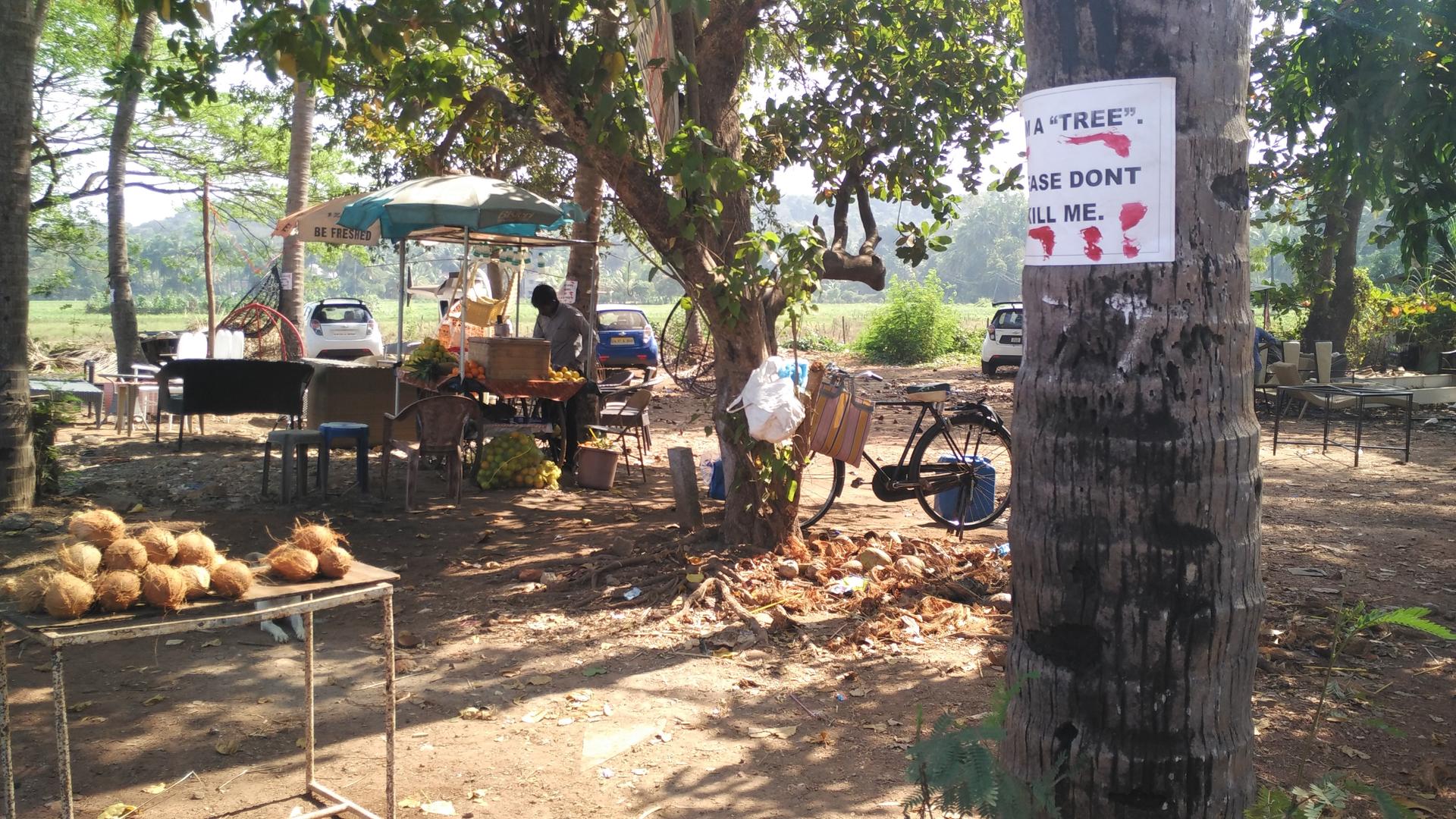An Indian court will decide whether a palm is, in fact, a tree
Coconut palms are ubiquitous in the Indian state of Goa.
Here's a question that sounds a lot more theoretical than it really is: When is a tree not a tree? The short answer: When it's a coconut palm in the Indian state of Goa.
In December 2015, the state government kicked the coconut palm off its master list of trees. Earlier this week, two conservation groups sued the state to reverse that decision.
To understand the case, we have to go back in time to 1984, when Goa passed a law to imprison anyone who cut down trees covering more than about five acres in one year. To fell more trees, even in a private garden, you need permission from the state forest department.
With the state government’s re-classification, the coconut is no longer protected under this act.
The state’s environment minister Rajendra Arlekar said at a recent press conference that the amendment was a response to the demands of farmers and orchard owners who begged the government to remove the palm from the list of regulated trees in order to replant higher-yield palms. But citizens and activists think this is really a move to appease builders.
"The government is clearly trying to play games with all of us,” says Armando Gonsalves, who runs Goa For Giving, one of the two NGOs suing the state.
“They say it's for the benefit of the farmers. It's not. A real farmer would never cut a coconut tree — no Goan would do that, unless you're a builder. For a builder, it's blanket permission to do what you want, pick up the land and cut it."
According to Gonsalves, the builder lobby is very strong in Goa. No one will directly stand up to them. The only builder who would speak on the record insisted they never cut trees. On the contrary, they said, they plant many more trees than they ever cut down.
But evidence suggests that’s not the case for every builder.

In Amdai village, protests marked a spot where 500 trees were cut to make way for a distillery. Youth activist Kapil Korgaonkar from the Goa Heritage Action Group found a spot in Siolim village where 150 trees disappeared at night. In their place were earth-moving equipment, building debris, gravel and wide tire prints in the soft mud.
The coconut defines Goa
This classification has been raised in the courts in part because the coconut is central to the Goan identity.
"There is a word in Konkani called 'Goankarpond,'” says theater producer Michael Gracias. “Goankarpond is Goan-ness. It is incomplete without the coconut tree."
The two NGOs suing the state, Vanashakti and Goa for Giving, as well as heritage activist Prajal Sakhardande have mobilized citizens to protest the re-classification and sign petitions seeking its reversal.

The coconut tree isn’t purely symbolic. It’s an important part of the economy. Goans use all parts of the coconut tree, from the fronds and the bark to the coconut shells. Goan cuisine is incomplete without coconut milk.
The coconut palm is also important for the environment, Sakhardande said.
Palm trees keep sand dunes from eroding while tethering the local grasses and vegetation.
Goan activists believe there is a lot at stake here. And they want the government to back down in the face of the lawsuit.
“The litigation is essentially to force the government to drop their absurd stance that [the coconut] is not a tree” and restore its protection from the builders who want to cut it indiscriminately, says lawyer Aakash Rebello.
This week, there was a preliminary hearing on the mater. The court will hear the case in six months, but in a few weeks will issue an interim order to determine how palm trees will be treated until the court rules.
Rebello said he is hopeful the bench will rule for a reversal and re-classify coconuts as trees.
Until then, it’s posters, songs, and petitions as groves continue to disappear.
